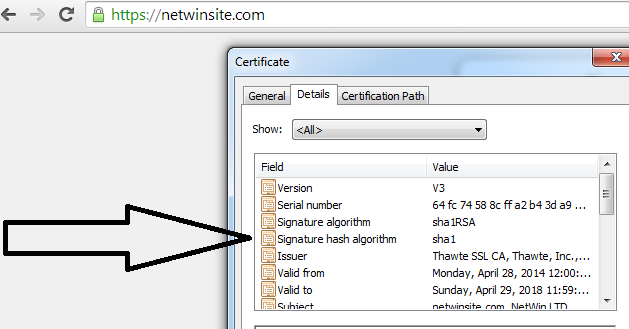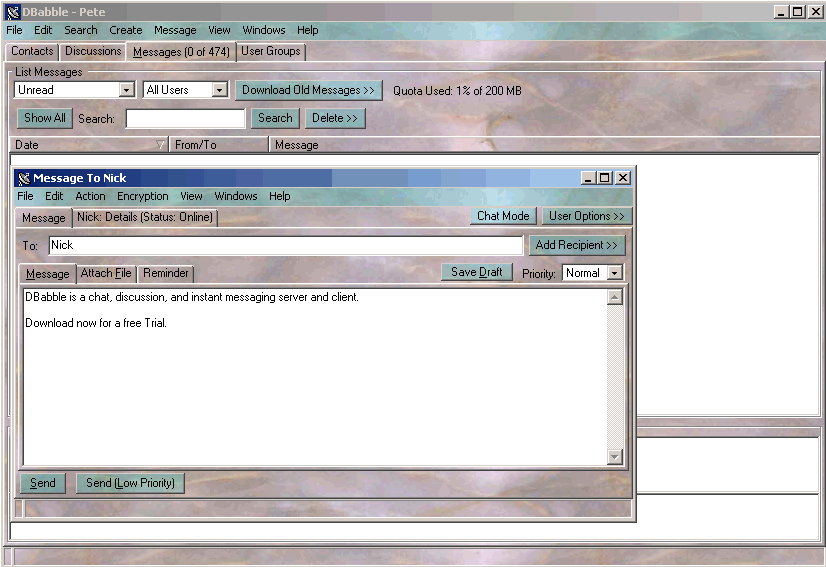

I would use the created "Sudo Local Folder" on my home server as my "Local Folder" even though technically it would be a "Remote Folder/Account". I would still keep a "Local Folder" directory in Thunderbird, but I wouldn't use it. I just keep running into the situation of where I have an important email saved on my Desktop Local Folder and I am at school and need it on my Laptop. I am really OCD on how my files are arranged and where they are kept. The whole central directory thing is basically a preference thing.

The only real advantage I can think of is not having to configure the IMAP accounts on every computer you use, but that seems simpler than having to administrate a home email server, IMO.
#NETWINSITE SURGEMAIL PC#
I mean, I have several notebooks that I use for work plus the PC (hack) and MB I use at home and they all access my IMAP folders and create local copies of my email files with no problems.Īnd even if you do configure a mail server at home, you still have to keep a local copy on your laptop, or do you intend to access all of your files only from your home mail server? (is your upload rate really that fast?) What will you do when you don't have an internet connection or your home server is down? I do not, however, understand what the benefit of having one central e-mail directory may be. The easiest solution is indeed the last one you mentioned, since you need to have access to your server on the road (laptop). If you have any info that would be useful to me, please post. I guess basically what I am asking is "What do you suggest I do for my problem?". I guess this is sort of like option 3 above, but it would be using my own resources. Then I can just use it as a regular email account on all my systems. Therefore, I can have my Local Folders on my homeserver.
#NETWINSITE SURGEMAIL UTORRENT#
I was thinking (since my homeserver is already a home file server, a home multimedia server, multimedia extender for the bedroom, a home print server, a web server, an ftp server, a utorrent server/client with webui, and a million other things) that I could get a free opensource (or a nonfree from the usual places ) email server program that supports IMAP. I do not really like this idea though, I am not a big fan of having accounts all over the internet.Ĥ) This is the one I like the best. Technically all of my saved email would be on thier servers, but I would have an additional copy on each of my operating systems. Here is what I have thought of so far:ġ) If there is a Thunderbird Add-On for this, it would work, but I haven't found one yet.Ģ) I could put the Local Folders on my homeserver, but that would make it to where I would have to mount my homeserver everytime I boot into OS X, and it would mean I would not be able to view my Local Folders when I am away from home on my laptop (which is a must).ģ) I am thinking that maybe I could just create an additional IMAP account on AIM or GMAIL. My problem is that I want my Local Folders in Thunderbird to be the same across all systems. Currently my AIM and GMAIL accounts are IMAP, so I have no syncronization issues with my actual email. I use Thunderbird for all three operating systems.
#NETWINSITE SURGEMAIL MAC OS X#
Sahu, S., Dongre, B., Vadhwani, R.: Web Spam Detection Using Different Features.I am currently dual-booting Windows XP and Mac OS X 10.4.11 on my Desktop, plus I am using Windows Vista Home Premium on my Laptop. Nazirova, S.: Survey on Spam Filtering Techniques. Graham, P.: A Plan for Spam (August 2002) World Computer Science and Information Technology Journal (WCSIT) 1(3), 96–99 (2011) ISSN 2221-0741ĭow, J.: Suggested Keywords for Spam Filters (February 19, 2009), Khalid, A., Osman, I.: A Multi-Phase Feature Selection Approach for the Detection of SPAM. Gray, A., Haahr, M.: Personalized Collaborative Spam Filtering (2004) Realtime Blackhole Lists, Advanced Server Software, Zdziarski, J.A.: Ending Spam: Bayesian Content Filtering and the Art of Statistical Language Classification (2005) In: International Workshop at European Conference on Machine Learning and Principles and Practice of Knowledge Discovery in Databases, Antwerp, Belgium (September 15, 2008) Madkou, A., Hefui, T., Hefny, A., Refaat, K.S.: Using Semantic Features to Detect Spamming in Social Bookmarking Systems. What is spam.htm? Indian University, Knowledge Base (May 13, 2009),


 0 kommentar(er)
0 kommentar(er)
